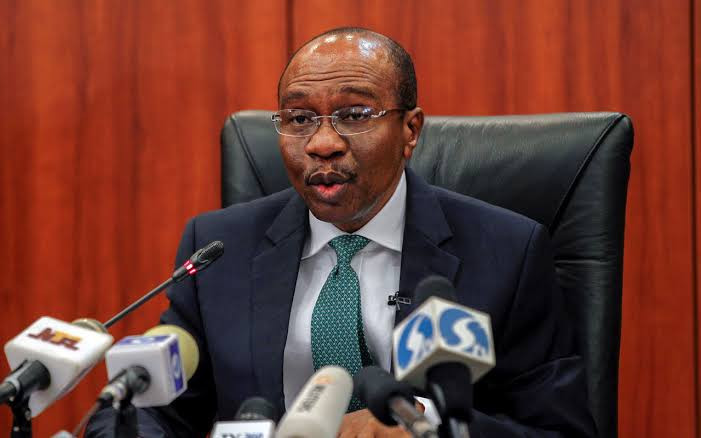-

-
Wikirise.com Advertise with Us HereStats: 4,694 members, 37,018 Posts
Number of Comments : 2,630
Date: Thursday, 25th April 2024
CBN developing fresh regulations to tackle threats to financial systems, says Emefiele
By Essang Michael - November 3, 2022 | Categories: BusinessTags: Economy
Share this post:

17 million Nigerians not interested in electronic money transfers
Threats posed to the financial service system informed the raising of a set of new and revised guidelines, regulations and legislations to address potential infringements, alter private sector incentives and reorganize the market to promote competition and encourage new entrants, the Governor of the Central Bank of Nigeria (CBN), Godwin Emefiele has said.
The CBN chief, who stated this in Abuja yesterday at the 28th edition of the annual in-house executive seminar on ‘digitalization of money and monetary policy in Nigeria’, noted that the apex bank is mindful of the possibility that the new forms of innovative financial products or services could render some existing banking laws and regulations obsolete and potentially harm financial growth.
He admitted that the penetration of digital technology ushered in new dimensions of risks, including sophisticated digital fraud and cybercrime.
He listed domestic and cross-border safety and security measures, digital identification, anti-money laundering standards, and cyber security as steps taken to strengthen operational resilience and ensure the safety of the financial system.
Emefiele, who spoke through the Deputy governor in charge of financial system stability, Aisha Ahmed, further stated that in today’s digital revolution, central banks are not only preoccupied with providing an enabling environment for the spread of digital technology in the financial system but also at the forefront of cutting-edge innovative products and services to provide safe and open payments for a digital economy.
The CBN helmsman, who acknowledged that there is still a huge task ahead, said the existence of low-level formal financial services, low income and financial illiteracy, an underdeveloped technology ecosystem and weak infrastructure, have continued to limit the potential for integration of digital financial services in Nigeria.
He stressed that although considerable gains have been achieved in boosting financial inclusion in Nigeria, at 64.0 per cent, the inclusion rate slows down the digital transformation wheel, as all citizens must be carried along to optimize the gains of a digital economy.
Emefiele added: “Also, despite the significant progress recorded in the use and spread of digital payment infrastructure, particularly in the economic cities, the current financial inclusion rate suggests that more work is needed. The high cost of telecommunications infrastructure, including Internet and electricity, in remote, urban and low economic activity areas, continue to dissuade investments in such areas, where low income and financial illiteracy are already inhibiting social and economic advancement.
As such, there is ample room for deepening the financial system through broader coverage.”
In his remarks at the occasion, the deputy governor, economic policy of the CBN, Dr Kingsley Obiora, hinted that the volume of the eNaira in circulation is currently at N2.10 billion, a growth of 190.1 per cent, relative to its level when it was launched.
He explained that the development is buttressed by the giant stride made in the digital currency space, as the creation of both individual and merchant wallets has gained traction and is poised to further stimulate eNaira transactions in Nigeria.
Dr Obiora noted that about 17 million adults are not currently making electronic payments but own phones and are interested in mobile money while another 22 million adults are not currently making electronic payments but say that they could be convinced to use it.
“This reflects the extent to which the eNaira could impact the unbanked and under-banked to improve livelihoods, as well as economic growth and development in Nigeria,” he added.